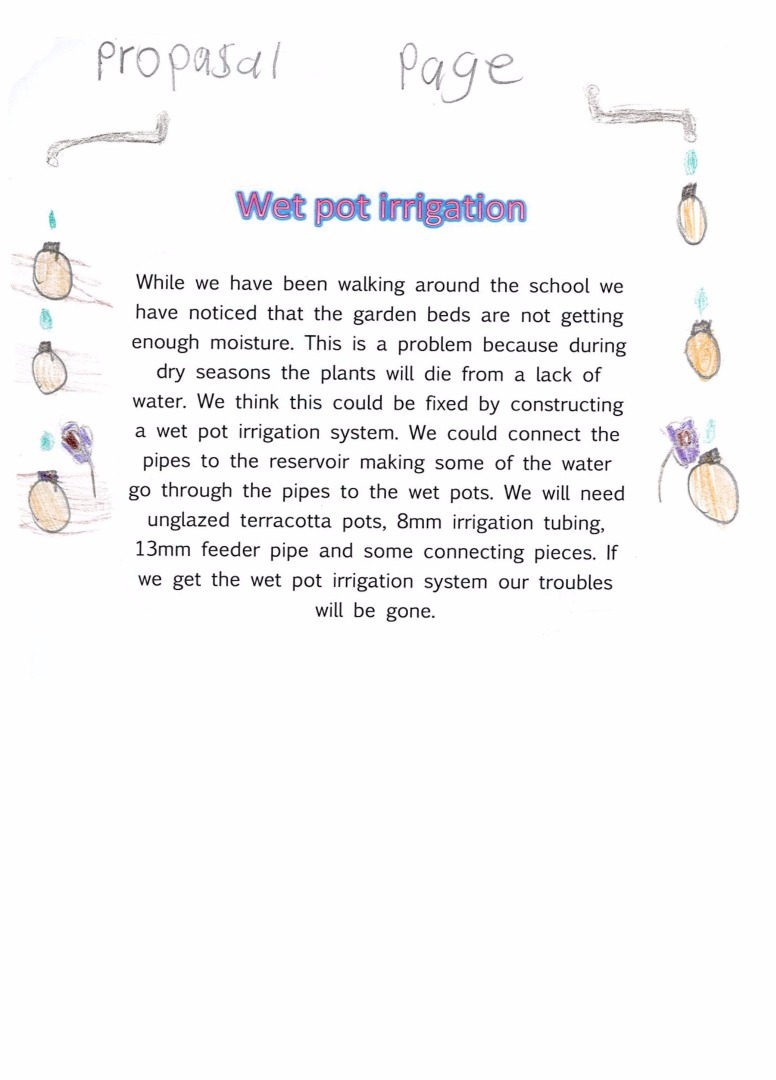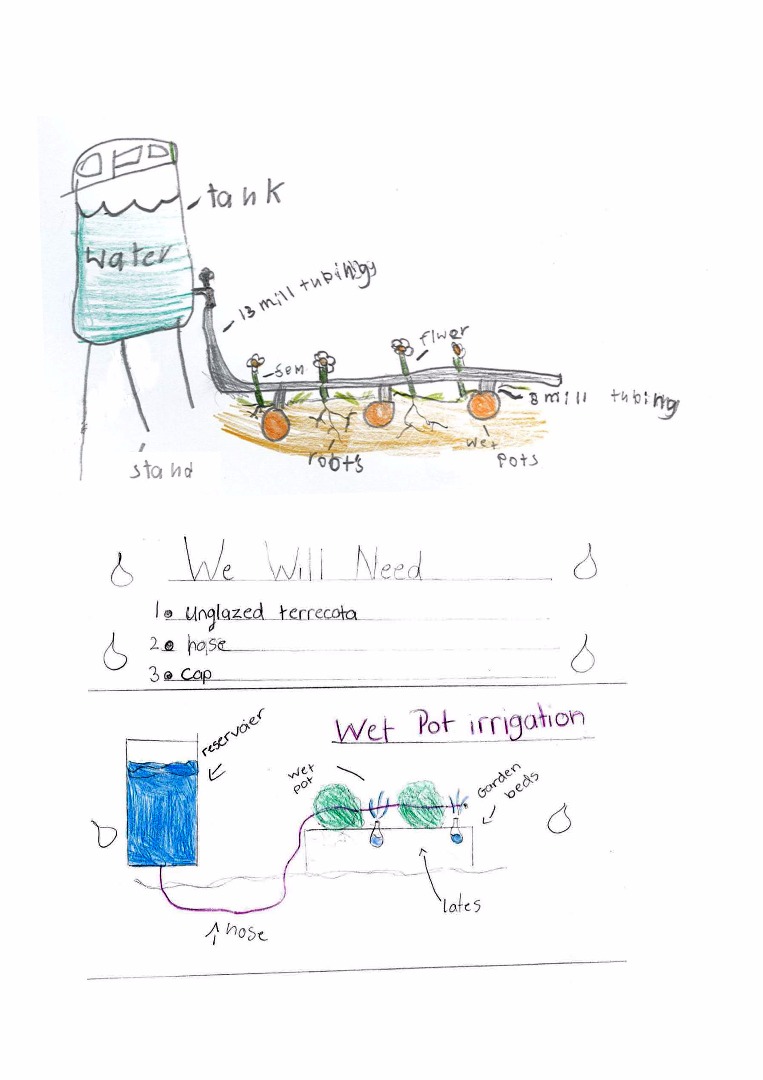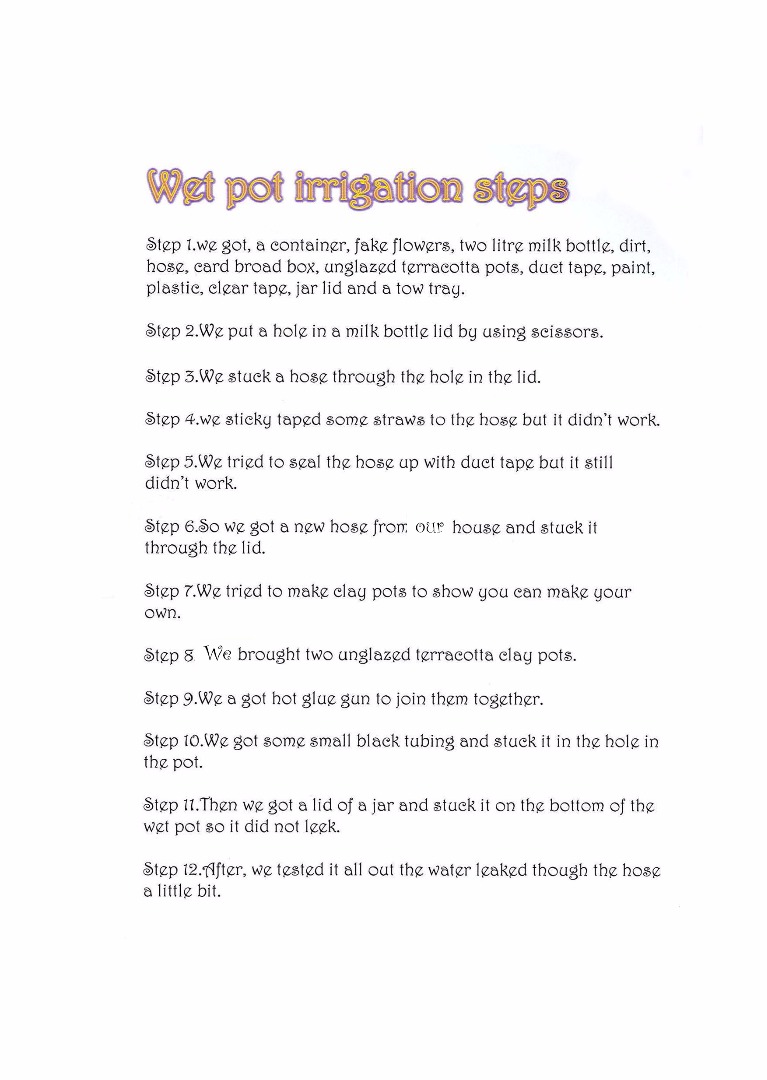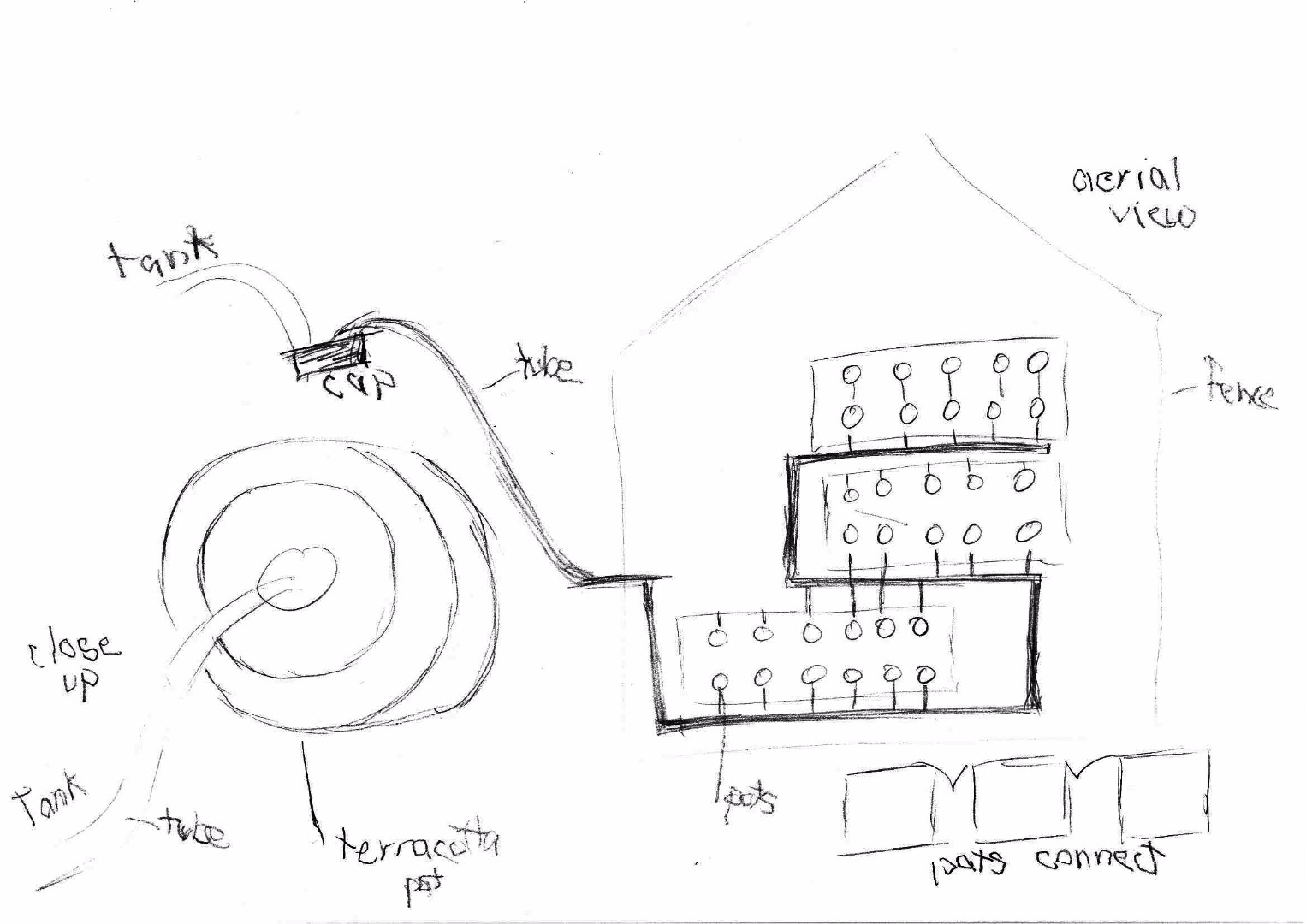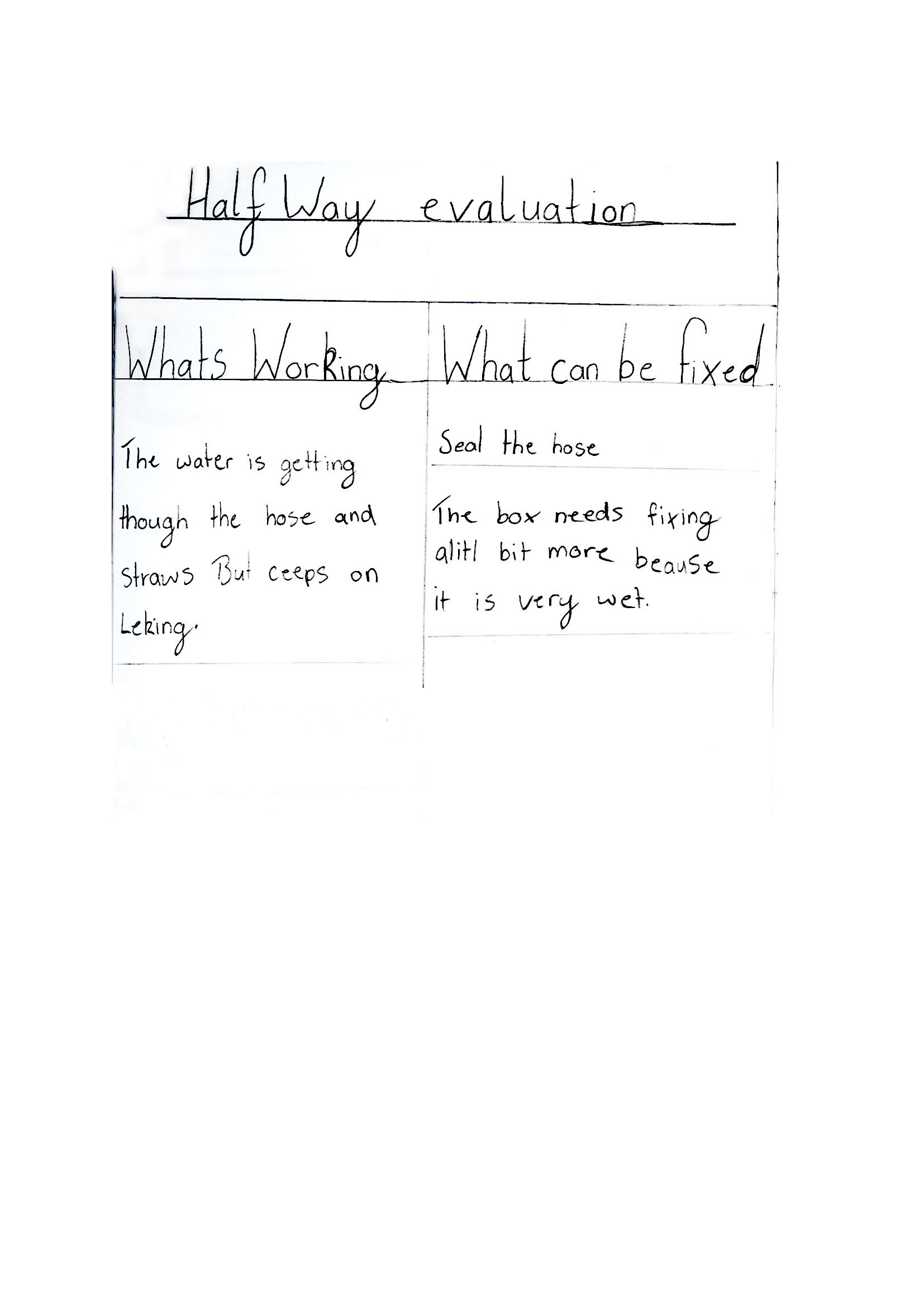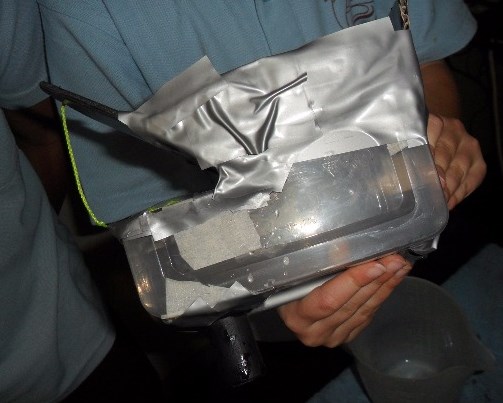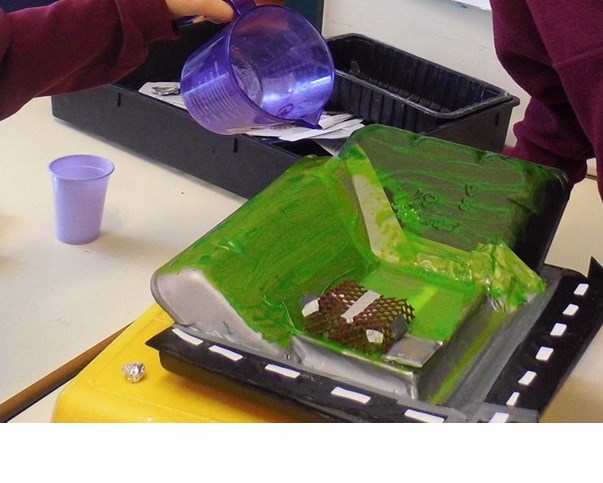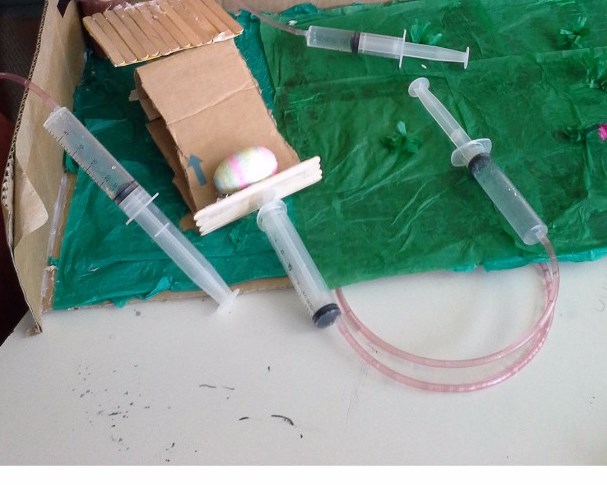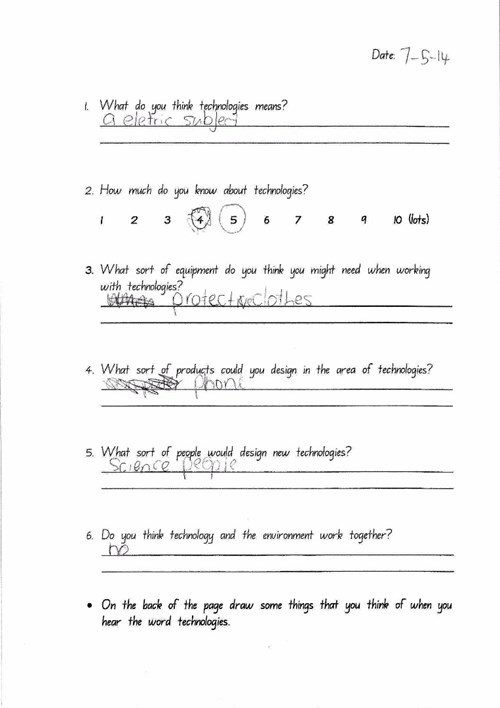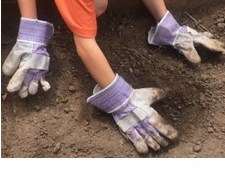Design project: Water
Summary of task
Students investigated water management systems in the school and made suggestions for design improvement, or offered alternative designs to solve perceived problems. They were required to submit a labelled diagram/drawing of their design idea including information about what problem the design was intended to solve, how the design would work and suggested materials for building the design. Students selected suitable materials to make a scale model of their design. They tested their model and evaluated its effectiveness. Students documented the design process in a digital format including photographs, videos, scanned documents, and three-dimensional rendered models.
The focus of this task was to design and produce improvements to an environment for the technologies context materials and technologies specialisations.
Achievement standard
By the end of Year 4, students describe how social, technical and sustainability factors influence the design of solutions to meet present and future needs. They describe features of technologies that influence design decisions and how a range of digital systems can be used.
Students outline and define needs, opportunities or problems. They collect, manipulate and interpret data from a range of sources to support decisions. Students generate and record design ideas for an audience using technical terms and graphical and non-graphical representation techniques including algorithms. They plan a sequence of steps (algorithms) to create solutions, including visual programs. Students plan and safely produce designed solutions for each of the prescribed technologies contexts. They use identified criteria for success, including sustainability considerations, to judge the suitability of their ideas, solutions and processes. Students use agreed protocols when collaborating, and creating and communicating ideas, information and solutions face-to-face and online.
